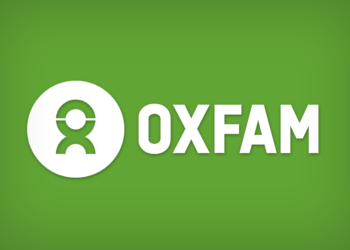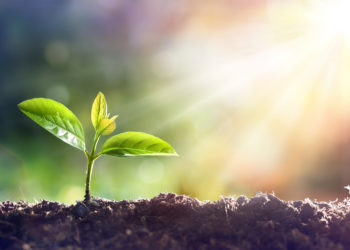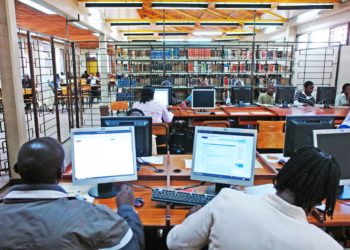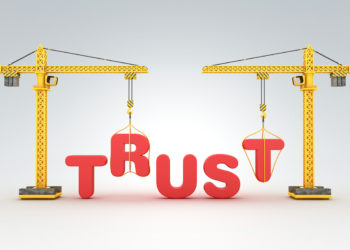Like Joseph, Martin, and the innumerable brothers and sisters living in the shadows of our nation, I’m a dreamer. Even though prevailing winds seem charged with uncertainty, I remain grounded in my hope for change. If 2020 was supposed to be a year of vision, let’s make 2021 our year of action.
I’m a proud black man, steeped in Ethiopian heritage — with its weighty pentatonic music, incense-filled coffee ceremonies, exuberant holidays, and spicy food. My culture and consciousness of the BIPOC struggle helps me appreciate values like determination, diversity, hospitality, collective responsibility, and faith. These values prompted my exploration of how our profession (scholarly communications) addresses societal issues, particularly rising inequality.
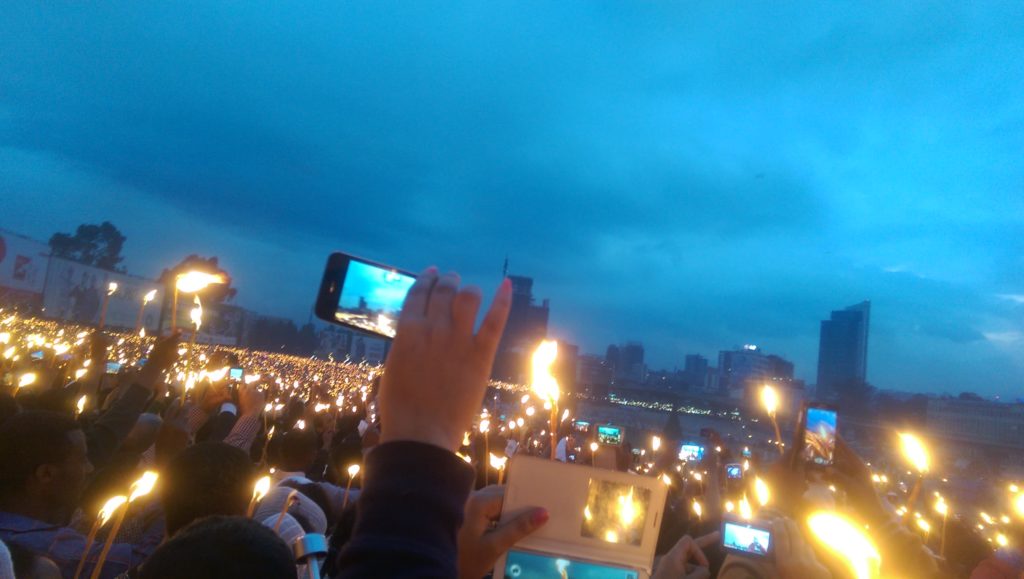
Let me begin by saying we owe a debt of gratitude to The Scholarly Kitchen Chefs — both regular contributors and guest writers — for paving the road ahead with words of solidarity throughout 2020, as well as the catalyzing behind-the-scenes work of the C4DISC. We all have the opportunity to help effect change and, during this time, I have been contemplating what participation would look like for me. I kept asking myself: What more can I add? Will the desired change ever come? Or in the words of Solomon:
Vanity of vanities, says the Preacher, vanity of vanities! All is vanity. What does man gain by all the toil at which he toils under the sun? A generation goes, and a generation comes, but the earth remains forever. The sun rises, and the sun goes down, and hastens to the place where it rises.
But eventually, the Preacher’s words came full circle for me:
For what does it profit a man to gain the whole world and forfeit his soul?
Right, wrong, or somewhere between, I decided to add my voice to the conversation.
We Make Great Declarations
Like a choir singing in unison, we (scholarly communication professionals) resolutely lift our voices in support of advancing knowledge (enlightenment) for the benefit of humanity. And you can count me in! But remove the rosy lens for a second and consider how we measure the “for the benefit of humanity” part. One indicator that I explore throughout this self-reflection — global inequality — has gotten worse over time despite scientific advancements. We broadly discuss access; however, more open access (OA) publications or transformative agreements won’t solve humanity’s most pressing problems if living in a world society stricken by poverty and privilege remains the status quo. As Thoreau summarized, we have an “Improved means to an unimproved end”. In the US, for example, a crisis of healthcare disparities persists despite tremendous advances in biomedical research (see here and here). Interestingly, this troubling trend of growing income inequality is prominent in the very countries that produce the most scientific and engineering publications (e.g., China, the USA, and India) and those with high publication growth rates like Russia.
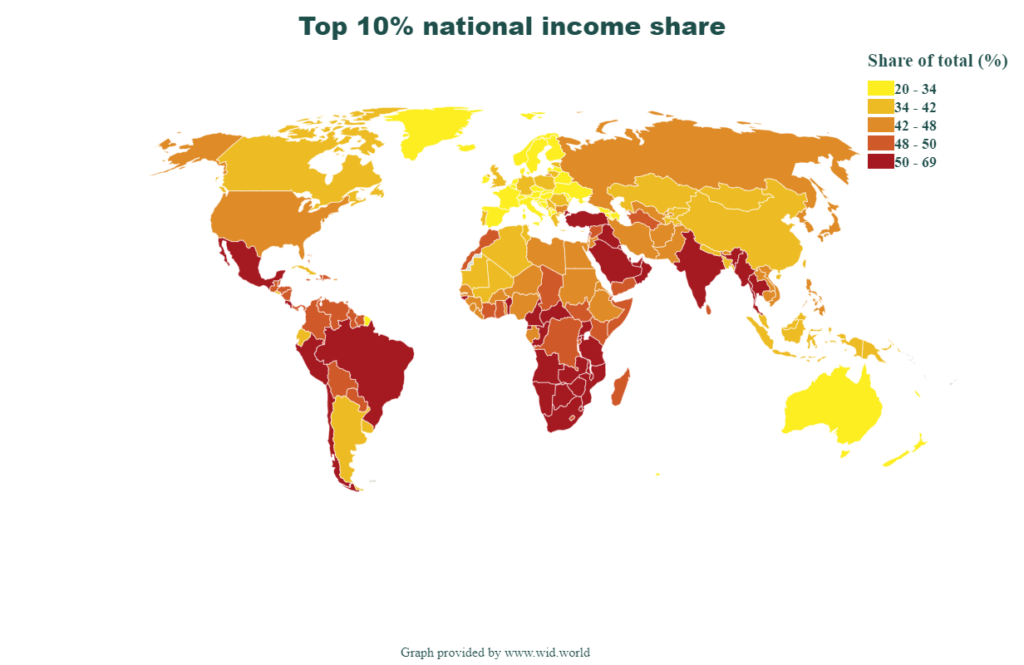
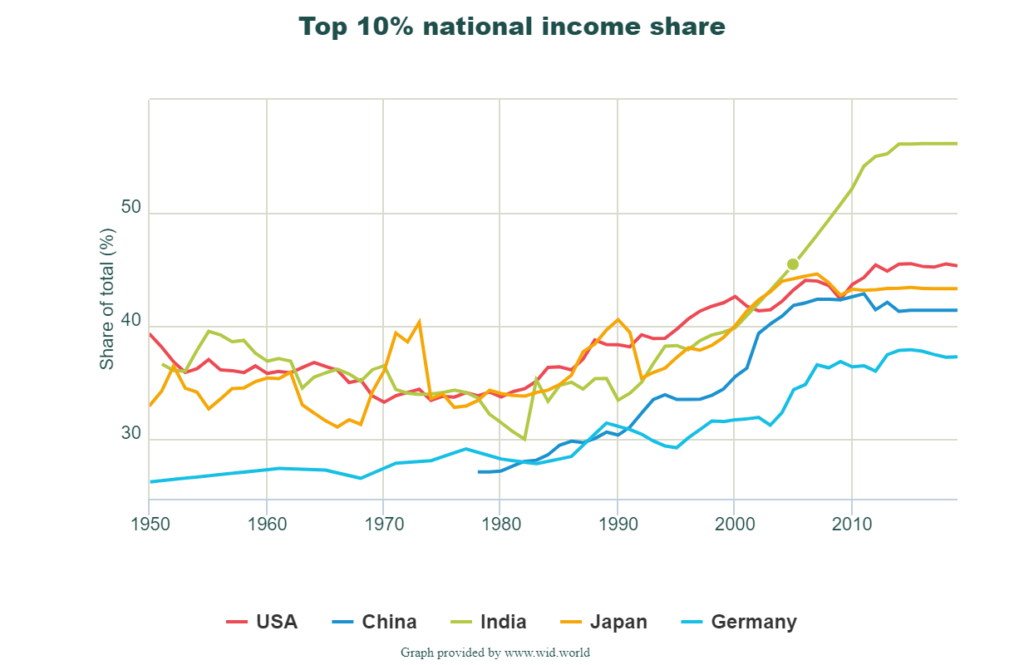
Publication Output, by Region, Country, or Economy

If we recognize the importance of bridging science and society, let’s then consider how our industry can be a conduit for socio-economic improvement. We might not solve “the world’s problems” alone, but we can spend more time thinking about the gaps between the economically privileged and the precarious. We can put more energy into developing a shared understanding of impact (in terms of societal transformation) and commit ourselves to support practical solutions. We must realize that, in addition to the growing inequality crisis, there’s a widening chasm of values coupled with a barrage of misinformation campaigns, which together allow little room for humanity to stand together. For times like this, we need more than declarations.
Recall how the scientific community, fundamentally supported by our scholarly communications industry, articulated climate change as an existential threat. The urgency of the climate issue transformed politics and inspired the next generation (Greta Thunberg is one such example). The scholarly community’s response to the Trump administration’s handling of COVID-19 was unequivocal and unprecedented. When Plan S was first announced, researchers, societies, and publishers galvanized to petition government and institutions, resulting in changes to the implementation guidance (and hesitancy by the White House Office of Science and Technology Policy to adopt). Are we acting with similar urgency to ensure our industry’s footprint on inequality is a net positive?
To drive real change, we need unity in values and action. Otherwise, reason can be ignored, forgotten, or superseded by bigotry and greed.
As we move through this year, I challenge us to look at our organization taglines, strategic plans, budgets, and values statements and to exercise healthy debate about who benefits from advances in science and scholarship. Then consider what concrete steps we should take to offer equitable improvements more holistically.
Ideas for Addressing Disparities
We live and work in a digital economy, with digital objects that aren’t limited by geographic borders, class, gender, or race. So let’s not limit ourselves either. We shouldn’t expect governments alone to solve issues where we, as a community, can and should play a pivotal role. That said, there are some good government-led initiatives that we can learn from. For example, I support using the recently announced bipartisan Select Committee on Economic Disparity and Fairness in Growth as a model to emulate within our industry, perhaps as a formal part of existing structures like C4DISC.
Such a committee/program could support and report on activities within our industry. It could:
- Organize capacity-building workshops for underrepresented communities working in the knowledge creation and preservation space. Budget pro bono hours to assist underrepresented communities with grant writing, business development, and expanding partnerships with educators
- Galvanize funders, publishers, and open infrastructure partners to expand language support for OA articles, preprints, datasets, and metadata. DOAJ could also play a key role in advancing language support by including language support elements in their indexing requirements
- Masakhane, (isiZulu for: “We build together”) is an example of a grassroots community working to advance natural language processing research in African languages. Groups like this can be pivotal partners in terms of improving automated, machine-based translations (in addition to building tools with research applications in medicine, science, engineering, education, and government)
- Embrace pay transparency practices – reports show pay gap reductions as a result
- Divert a portion of travel funds freed up by virtual meetings and invest in learned publishing programs that empower underrepresented communities (e.g., AfricArXiv, IndiaRxiv, RINarxiv, redalryc/Amelica). And/or support projects that address other urgent needs like sex trafficking, access to clean water, food security, and education
Having the Courage to Act
When all is said and done, ideas and values without action are just vanity. My desire in writing this post is to inspire the courage to act, both individually and collectively. The Black Writers’ Guild demand for change in publishing in the UK in response to the tragic murder of George Floyd was courageous, as was Timnit Gebru’s fight against bias in Google’s AI program, and their employees’ subsequent decision to unionize in response to her retaliatory termination. These events and more inspire me to make 2021 my own personal year of action.
What inspires you? Are there actionable ideas for reversing disparities that we should embrace? Please feel free to share them here!
When scientific power outruns moral power, we end up with guided missiles and misguided men… Science has provided us with adequate means of survival and transportation, which make it possible to enjoy the fullness of this great earth. The question now is, do we have the morality and courage required to live together as brothers and not be afraid?
Dr. Martin Luther King Jr. in Where Do We Go from Here: Chaos or Community
Discussion
9 Thoughts on "Guest Post — The Words We Live By: Our Ideas and Values as the Catalyst for Action"
Thanks for sharing! It takes courage to express your ideas openly and honestly. I myself have struggled to find the balance between when to speak up and when to silently watch what actions others take. Or, at times do not take. And not to mention reminding myself that I too am human and giving myself grace to experience life as needed.
I agree as we move into conversations about how we as publishing professional broaden access to our gated knowledge, how we act will be a determining factor in where we land. What we do locally, will definitely impact what we do globally. Your ideas for addressing disparities are spot on. I especially like the idea of galvanizing funders and redirecting funds being saved on travel budgets. I’ve personally opted to stop doing so much talking (as I tend to do) and roll up my sleeves and do a bit more work in the spaces where I have greater influence. It’s meant I had to slow down on a few things, but that’s what tends win races in the long run. Slow and steady, right?
You ask what inspires me? I am inspired by my grandmother, who as a little girl had to drink out separate water fountains. I am also inspired by my aunt, who integrated her high school. Both women never stopped pushing past what was in front of them; and to this day, continuously encourage me to put my faith at the forefront and walk forward with expectation of change. And on days when I think all the efforts I am making amount to nothing, that I’m not doing enough, writing enough, saying enough. I am inspired by post like this. Again, thanks for sharing.
Thank you Jasmine, and wow! There is so much truth and power in what you penned. Slow and steady is indeed a very good reminder/perspective to keep in mind.
I’m glad I was able to use my voice in this way and that it had a positive impact on you. There were topics competing in my mind in terms of what I would write, and even when my heart settled on what I would say, I debated if the timing was right.
Ultimately, I thought about community, and how small changes can make a big difference – if only we remain committed to take action and share our stories.
Thank you so much for this inspiring piece – I like that you show us a big-picture perspective on the impact of what we do day to day.
Mary! Thanks for reading and the kind feedback. Seeing your name here brought me joy.
Dawit: Thank you for such a thoughtful and inspiring piece. One thing that inspires me is precisely the attention and energy that this issue, as well as other related issues of diversity and inclusion in publishing, are coming to the fore and inspiring change. This change is slower than we might hope for but it is real, and powerful. You, and Jasmine, Randy, and Damita, and so many others who are making an impact, mentoring, and leading the way for many to follow. Work done by C4Disc, and SciELO, and other organizations to drive needed change.
Thanks, John. I couldn’t agree more! Change… That’s powerful. The very idea of the word makes me sit and think.
I’m so grateful for the conversations bubbling up over the last year or so. They’ve given me renewed hope that we can “lift every voice and sing”.
Thank you, Dawit, for sharing your thoughts and offering inspiration. One way that publishers can take action to support greater equity and inclusion is by signing up to the SDG Publisher’s Compact, which not only challenges them to reassess their own operations and improve their sustainability, but to use their position as curators of knowledge to support the achievement of the Sustainable Development Goals. It’s a helpful roadmap with actions that can be taken to, as you say, “commit ourselves to support practical solutions.”
Thanks, Andrea! I really appreciate the commitments outlined in the SDG Publisher’s Compact. Indeed, we can build meaningful change through shared values and concerted actions. Still, while optimistic, I remind myself that we desperately need to foster a culture that goes beyond roadmaps. Given the urgency – we need regular occurring, candid discussions about tactics implemented to advance equity, supported by measurable results. I believe the UN, C4DISC, and certainly, other values-aligned groups can play a vital role in developing a community-based reporting platform. This along with the set up of gatherings would empower members to learn from one another, take action, and sustainably expand our footprint.
DAWIT–I love everything about this. I’m so excited to see where this goes. Please keep me in the loop.
